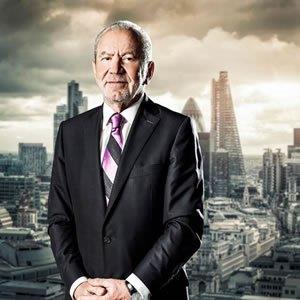The Gazette hall of fame: Alan Sugar
 Born in Hackney, east London, on 24 March, 1947, Alan had humble beginnings. The youngest
of 4 children, and brought up on a council estate, his father was a tailor who was
often out of work, while his mother worked in a local clothing factory. To bring in
a bit of extra money for the family, Alan boiled beetroot for a local greengrocer,
and scoured the streets for glass bottles to redeem for cash at the local sweet shop
– all at the age of 11.
Born in Hackney, east London, on 24 March, 1947, Alan had humble beginnings. The youngest
of 4 children, and brought up on a council estate, his father was a tailor who was
often out of work, while his mother worked in a local clothing factory. To bring in
a bit of extra money for the family, Alan boiled beetroot for a local greengrocer,
and scoured the streets for glass bottles to redeem for cash at the local sweet shop
– all at the age of 11.
After leaving school at 16, Alan sat an aptitude test at IBM to be a computer programmer, but was unsuccessful. He then worked briefly for the civil service as a statistician at the Ministry of Education, before deciding to work for himself. He took £100 out of his bank account, bought a second-hand minivan for £50, and £40 worth of car aerials, and within a week, had made a profit of £60.
By the age of 21, Alan had raised enough money to launch his own electronics company, Alan Michael Sugar Trading (Amstrad), in 1968. Amstrad’s core business was stereos and the groundbreaking PCW8256 personal computer. The firm floated on the stock market in 1980.
The PCW8256 was an all-in-one affair, comprising processor and screen, keyboard and printer, and was priced competitively for the ‘man in the street’. By 1987, at the age of 47, he was worth an estimated £600 million, making him the 15th richest person in the UK.
However, the stock market crash of that year saw over £400 million slashed from Amstrad’s value, and the company never truly recovered. The 1990s proved a difficult time for Amstrad, with the launch of a range of business PCs with unreliable hard disks, which only damaged its reputation further. A brief foray into the video games market was also unsuccessful, with rival consoles such as the Super Nintendo and Megadrive offering a more comprehensive selection of games.
Despite these setbacks, Amstrad remained an important player in the retail electronics sector, its core business being providing set-top boxes for BskyB. On 31 July 2007, BskyB bought Amstrad for £125 million.
The 90s was an eventful decade in Alan’s life, also becoming chairman of Tottenham Hostspur Football Club in 1991. Initially hailed as its saviour, he invested heavily, paying off £20 million of debts. But his relationship with Tottenham's fans collapsed soon after he sacked manager Terry Venables in 1993. He sold his shares in 2001, after death threats were made to him and his family.
In 2000, Alan was knighted for services to the home computer and electronics industry (Gazette issue 55710). The ceremony took place on 13 June (Gazette issue 55950).
Having previously sat on the Business Council for Britain and fronted a campaign promoting the benefits of apprenticeships, he was named as the government’s enterprise champion in 2009. In the same year, Alan was given the title Baron Sugar of Clapton in the London Borough of Hackney (Gazette issue 59137).
In 2005, Alan became the star of the BBC show The Apprentice, in which candidates are ‘fired’, week-by-week, until one candidate wins a partnership. This includes an investment of £250,000 for the winning candidate to establish their own business. The 10th series began on Tuesday 14 October, 2014.
